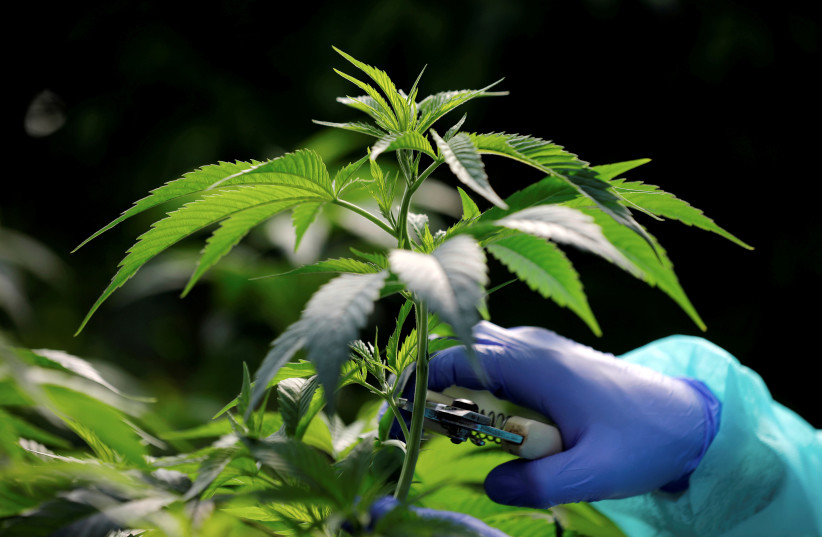Research uncovers Blautia bacteria’s crucial role in gut health and disease protection


A low-fiber “Western diet” causes damage to the protective mucus barrier in the gut, and such damage can increase the risk of inflammation and infection. By studying the gut bacteria of people who increased their intake of dietary fiber, researchers at Umeå University have found that the intestinal bacterium Blautia plays a key role in protecting the mucus barrier. The results are published in the journal Nature Communications.
Our results contribute to an increased understanding of how the intestinal bacteria and the mucus layer work together, which may eventually lead to new treatment strategies for diseases linked to the Western diet such as the inflammatory bowel disease ulcerative colitis.”
Sandra Holmberg, PhD student at the Department of Molecular Biology at Umeå University
To protect itself against the trillions of microorganisms in our intestines, our body needs effective defence mechanisms. One of the main protections is the mucus layer that covers the intestinal wall. Normally, this mucus is impermeable to bacteria and thus maintains a healthy distance from the intestinal bacteria. In the large intestine, where the amount of bacteria is greatest, this barrier is preserved through continuous secretion of mucus by our body.
Diet shapes the intestinal bacteria composition and the mucus barrier. Previous studies have shown that if mice are given a high-fat/high sugar Western diet that is also low in dietary fibre , the composition othe intestinal bacterial community changes, less mucus is secreted and the remaining mucus becomes penetrable to bacteria. This increases the risk for infection and inflammation because the intestinal bacteria can come closer to the body. Since infection and inflammation are rather an exception than the rule, it has been unclear which intestinal bacteria are important for mucus regulation and what the mechanism is.
In collaboration with researchers in Germany and Finland, Research fellow Björn Schröder and his group have investigated precisely this by following people who changed their diet and then using mouse models to study the effect of the intestinal bacteria on mucus function.
In the three-month study, the healthy participants increased their daily dietary fibre intake by 10 grams, which is equivalent to about four apples or 3 deciliters of oatmeal. To study the significance of the increased fibre intake, gut bacteria were collected at the beginning and the end of the study. These gut bacteria were then transplanted into mice which were fed a low-fiber Western diet. In the group of animals transplanted with intestinal bacteria from the beginning of the study, the researchers observed damage of the mucus layer. The opposite was seen in the group with increased consumption of dietary fibres, where the mucus layer looked fine.
“The result highlights the significant role that dietary fibre has for our intestinal bacteria, which in turn contributes to maintaining the important mucus barrier,” says Rachel Feeney, Doctoral student at the Department of Molecular Biology at Umeå University.
The researchers further studied the bacterial composition of the intestinal bacteria and saw, among other things, that the amount of the bacterium Blautia was higher after a period of increased fibre intake. Its presence also correlated with the mucus function measured in the mice. In supplementary mouse studies where only Blautia was added together with the Western diet, similar improvements of mucus function, as previously seen when transplanting the human high-fibre bacteria, could be noted.
Using a specialized mucus measurement technique, the researchers discovered that even secreted molecules from Blautia could directly stimulate mucus secretion, explaining how its presence can maintain mucus function in the low-fiber environment. When further searching for the identity of these Blautia-secreted molecules, the researchers found short-chain fatty acids- structures previously shown to be beneficial to gut health. Surprisingly, these molecules were able to directly improve mucus function, which describes the mechanism behind the bacteria’s function.
The addition of Blautia also reduced the severity of infection of an intestinal mouse pathogen similar to the human disease-causing bacterium E. coli.
“Therefore, we concluded that the Blautia may also have protective effects in case of infection,” says Vishnu Prasoodanan, postdoctoral fellow at the Department of Molecular Biology at Umeå University.
Holmberg, S. M., et al. (2024). The gut commensal Blautia maintains colonic mucus function under low-fiber consumption through secretion of short-chain fatty acids. Nature Communications. doi.org/10.1038/s41467-024-47594-w.
EN SON TV sitesinden daha fazla şey keşfedin
Son gönderilerin e-postanıza gönderilmesi için abone olun.







.jpg)









